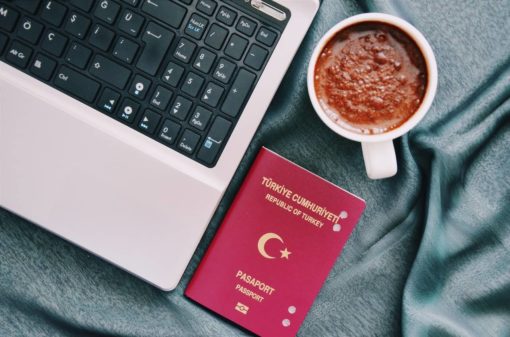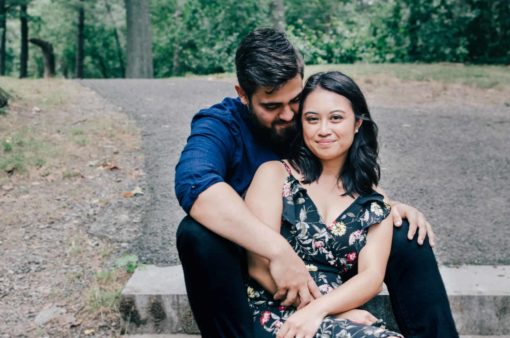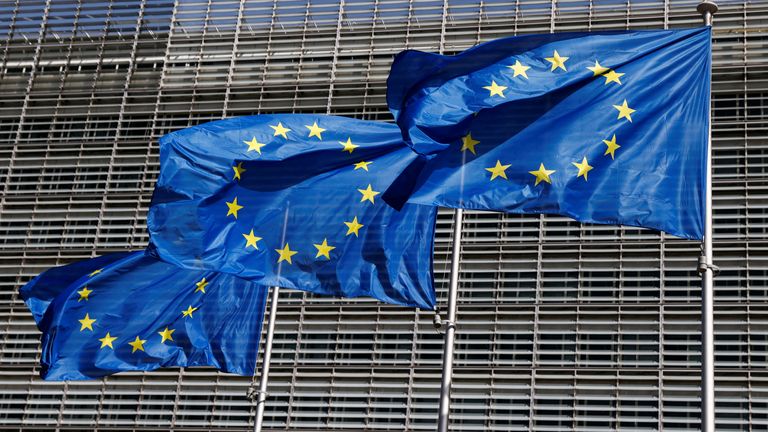- 02074940118
- [email protected]

Spouse Visa
Given what is at stake for you and your family, the UK spouse visa application process requires careful handling. We are on hand to guide you through every step.

Bringing your loved ones to the UK is life-changing. While the spouse visa UK application process can be complex and daunting, we understand you want to start the next chapter in your family life quickly and with minimal disruption and expense.
If you’re married or in a civil partnership with a British citizen or a person with UK settled status, you do not automatically acquire immigration rights or lawful status in the UK.
You will instead have to apply to the UK Home Office for permission to come to the UK to live with your spouse. As part of the application, you need to provide compelling evidence that you meet the Spouse Visa requirements.
The Home Office continues to take a tough stance when determining spouse visa applications, so it is important to ensure you follow the correct process and that your submission is comprehensive in evidencing your eligibility.
In this guide, we detail the spouse visa requirements and the process you need to follow to make your application.
What is a spouse visa?
The Spouse Visa UK is the permission granted by UK Visas and Immigration (UKVI) to a non-UK resident to come to the UK to live with their partner.
This category of visa is based on an individual’s right under Article 8 of the European Convention on Human Rights (ECHR), namely the right to respect for one’s private and family life.
The UK spouse visa is open to foreign nationals who are married to, or in a civil partnership with, a British citizen or a person with indefinite leave to remain in the UK or settled status and no time limit on their stay in the UK.
To qualify for entry to the UK, you will need to be granted entry clearance prior to your arrival.
What does a spouse visa allow you to do?
With a Spouse Visa, you can work or study in the UK. There are no restrictions on the type of work you’re allowed to do (unlike most work visas).
The Spouse visa also provides a path to UK settlement; after five years in the UK with a Spouse visa, you can become eligible to apply for indefinite leave to remain.
How long does the Spouse Visa last?
If you are applying as a fiancé(e) or proposed civil partner, you will only be permitted to come to the UK for a period of 6 months to enable you to get married. You will subsequently need to apply for a Spouse Visa on the basis of your recent marriage or civil partnership.
If you applying from outside the UK and your application for a Spouse Visa – and entry clearance – is successful, your visa will initially be granted for a period of 33 months.
If you are already in the UK and are applying for leave to remain as a spouse, then you will be granted leave as a spouse for 30 months.
You can apply to extend your spouse visa for a further two and a half years, to take your total stay as a spouse to five years (60 months). With five years under the spouse visa, you then become eligible to apply for indefinite leave to remain. With ILR, you will no longer be subject to immigration restrictions.
You can also make your application for British citizenship as soon as you are granted ILR, provided you meet the eligibility criteria to naturalise.
Eligibility requirements for the Spouse Visa UK
There are also a number of additional Spouse Visa UK requirements that, in most cases, must be strictly adhered to, not least because UKVI is continuously seeking to crack down on sham marriages.
You may be eligible to apply for a spouse visa if you can show the following requirements are met:
- Your partner qualifies
- You and your partner are 18 years old or over.
- Your relationship must be genuine and subsisting.
- You must intend to live together permanently in the UK with adequate accommodation
- Financial requirements are met
- You can speak and understand English to the requisite level
Your partner
To apply for a Spouse Visa UK, you must either be the partner of a British citizen or, alternatively, the partner of someone with indefinite leave to remain or settled status, or the partner of an individual in the UK with a Turkish Businessperson visa or Turkish Worker visa or refugee status or humanitarian protection.
Qualifying relationship
Your relationship must fall into one of the following categories:
- You are in a civil partnership or marriage that is legally recognised in the UK
- You and your fiancé(e) or proposed civil partner will marry or enter into a civil partnership in the UK within 6 months of arriving
- You have been living together in a relationship for at least 2 years prior to the date of submitting your application.
However, the definition of partner is relatively wide in that it not only includes a spouse or civil partner, it also covers the fiancé(e) or proposed civil partner of a British citizen or someone with settled status in the UK.
That said, where you and your partner are engaged to be married, or plan to enter into a civil partnership, you must prove that you will marry or enter into a civil partnership within 6 months of arriving in the UK.
If you are not married, nor indeed planning to get married or enter into a civil partnership, in other words, you are applying as an unmarried partner or common-law spouse, you must have been living in a relationship akin to a marriage or civil partnership for at least 2 years.
Genuine relationship requirement
In practice, one of the more challenging criteria to prove is that you and your partner are in a ‘genuine and subsisting’ relationship. Home Office guidance requires you to show that you have met your partner face to face at least once during your marriage.
If you are not married, you can apply as a partner by showing that you have been in a relationship for at least two years.
As part of your application, you will need to gather and submit extensive evidence to prove that you and your partner are committed and spend time together.
In cases where you are not yet living with your spouse, or if you have been apart for an extended period of time, you should be particularly thorough and extensive in proving your relationship is ongoing and genuine.
Supporting evidence typically includes details of any joint bank accounts, financial commitments or memberships; photographs and videos of you together from over the course of your relationship; details of holidays taken together; proof of cohabitation such as a mortgage statement or tenancy agreement and utility bills; and proof of communications between you both such as telephone records for any time spent apart; letters of support from family and friends.
Financial requirement
Under the financial Spouse Visa requirements, you will need to show that youu and your partner can support each other and any dependent children you have without recourse to public funds.
The minimum income threshold is currently set at £18,600 per annum, increasing to £3,800 where you apply with one dependent child, and thereafter an extra £2,400 for each additional child.
The financial maintenance threshold for family visas is set to increase to £38,700 from Spring 2024 .
To meet the relevant threshold, there are several different sources of income that can be relied on, including income from employment or self-employment, non-work income such as from property rentals, cash savings greater than £16,000, and maternity pay and/or pensions.
Further, in the event that your partner is in receipt of a specified benefit or allowance in the UK, you will be exempt from meeting the financial requirement in the form of the minimum income threshold. Rather, you will need to provide evidence of adequate maintenance and accommodation instead.
You need to meet the minimum financial threshold to become eligible for indefinite leave to remain after five years. Otherwise, if you don’t meet this requirement, you may be able to settle on the ten year route.
Accommodation requirement
Spouse visa holders are expected to live with their partner permanently. This means the partner must be able to show they can offer and fund adequate accommodation for their spouse and any dependent children, without needing to claim benefits or state support.
Adequate accommodation could be in the form of owned, mortgaged or rented property.
The size and type of accommodation should be suitable for the number of people in the family. For each child you have that is over one year of age, you must have an additional bedroom.
English language requirement
Save except where you are a national of a majority English-speaking country, to qualify for a Spouse Visa you will need to provide evidence of having an academic qualification that was taught in English and is recognised as being equivalent to a UK bachelors degree, masters degree or PhD, or that you have passed an approved English language test.
However, you will be exempt from meeting the English language requirement in the following circumstances:
- You are aged 65 or over
- You have a physical or mental disability that prevents you from meeting this requirement
- There are exceptional circumstances that prevent you from being able to meet the requirement prior to entry to the UK.
Spouse visa dependants
Children under the age of 18 are considered dependants. You will need to make a visa application for each child that will be joining you in the UK. Remember also that the minimum financial threshold is determined by how many dependent children you have.
Switching to the spouse visa
Under UK immgiration rules, you can in some circumstances apply to change your visa category from within the UK. This is known as ‘switching’.
You will not be able to switch into the spouse visa if you are in the UK under a visitor visa or if your leave has been granted for less than 6 months – except for fiance visa holders who are granted leave of up to 6 months and during this time are allowed to switch to the spouse visa.
This means if you already hold a UK fiancé visa, work visa, or student visa valid for more than six months, you may be eligible to switch to a spouse visa UK.
How do you apply for a spouse visa for the UK?
To apply for a Spouse Visa, you will need to submit an online application with UKVI and pay the relevant fee. This is currently set at £1048 if applying from within the UK and £1846 if applying from overseas.
If you are applying to extend or switch in the UK, you will also need to pay £19.20 to have your biometric information enrolled. This includes a scan of your fingerprints and a digital photograph of your face.
You will be instructed on how and where to make an appointment to submit your biometric information when you apply. This will be at a visa application centre if applying from outside the UK, or a UK Visa and Citizenship Application Services (UKVCAS) service point when applying to switch or extend.
You may also be liable to pay a healthcare surcharge as part of your application to enable you to use the NHS while living in the UK.
If you apply from outside the UK a decision will usually be made within 12 weeks. From within the UK it should take around 8 weeks when using the standard service, although you may be able to pay an additional fee of £800 for the super priority service to get a faster decision.
If you are applying as a spouse or civil partner of a UK citizen or someone settled in the UK, in addition to a valid passport you will need to provide documentary evidence of your marriage or civil partnership. As previously indicated, this must be a marriage or union that is legally recognised under UK law.
Alternatively, if you are applying as an unmarried partner or common law spouse, you must provide evidence that you and your UK partner have lived with each other for at least 2 years prior to applying. This will need to include documents like a joint bank account, joint tenancy agreement or joint mortgage.
In either case, whether you are applying as a married or unmarried partner, you must provide evidence that your relationship is ‘genuine and subsisting’, in other words, that supports the sincerity of your relationship. This can include evidence of communication between you and your partner as a couple, such as texts or emails, as well as photographs of the two of your together and travel documents to prove any visits to one another.
If either you or your UK partner has been married or in a civil partnership in the past, you will also need to provide evidence of the permanent breakdown of the previous relationship, such as a divorce or dissolution order.
Finally, you will need documentation to support both the financial and English language requirements. This should include at least 6 months worth of pay slips for both you and/or your partner or evidence of self-employed earnings, a letter from your respective employers outlining your role and job security, as well as evidence of any savings and/or benefits upon which you rely.
For the English requirement you will need either a certificate of your academic qualification or having passed the necessary English language test.
Spouse visa supporting documents
Along with the application form, you will also have to compile and submit supporting documents to evidence your eligbility.
The docuemnts to submit will depend on your specific circumstances but in most cases, you would need to provide:
- Proof your relationship is genuine – such as your marriage certificate, photographs of you and your spouse from throughout your relationship, and call logs proving communications between you.
- Proof that your relationship is subsisting – such as utility bills and bank statements with both of your names.
- Proof that you have both met face-to-face, at least once.
- Proof of meeting the English language requirement eg. IELTS test pass certificate.
- Proof of meeting the financial requirement, such as bank statements and payslips.
- Proof of meeting the accommodation requirement such as the rental or mortgage agreement.
Spouse visa application costs
To apply for a Spouse Visa from inside the UK costs £1048. To apply from overseas, the application fee is £1846.
Spouse visa processing times
Spouse Visa application processing times can take between one to six months, depending on UKVI caseload, the quality of your submission and the complexity of the application.
You should expect to spend several weeks preparing your applcation and all of the supporting documents.
Spouse visa interview questions
There is no single set of standard questions that you could be asked during your spouse visa interview. However, you should prepare well to answer questions about your relationship, your history together and future plans as a couple.
Examples could include:
- How did you meet your spouse?
- When did you meet your spouse?
- Have you met your spouse’s friends and family?
- How much does your spouse earn a year?
- Where do you plan to live?
If your UK spouse visa application is accepted
If your application is approved, you will be granted 33 months (entry clearance) or 30 months (leave to remain) biometric residence permit(if you apply as a fiancé(e) or proposed civil partner, you will be give a 6-month visa to enable you to enter the UK to enable your marriage or civil partnership to take place here).
Where applying from overseas, your passport would initially be issued with a 30 day “vignette” which will allow you to travel to the United Kingdom. You will need to collect your biometric residence permit within 10 days of arrival to the UK from a Post Office you would have selected during the application process.
During the period of your visa, you will be able to live and work in the United Kingdom. You will not be able to access public funds whilst on a spouse visa but you will have access to the NHS, as you will have paid the Immigration Health Surcharge as part of your visa application. Although you are permitted to travel overseas, you will need to reside with your partner in the UK continuously to qualify for an extension of leave/ILR after 60 months. You should keep evidence of living together from the date your visa is granted, for example bills, bank statements and other official letters and correspondence addressed to you and your partner at your shared home.
If your UK spouse visa application is refused, can you appeal?
Unfortunately, it is not uncommon for UKVI to refuse an application for a Spouse Visa. This is often due to a lack of documentation, not least where UKVI is not satisfied that the applicant and their UK partner have a “genuine and subsisting” relationship based on the documentary evidence submitted in support.
However, in the event that you are refused a Spouse Visa, there is a legal right of appeal to the first-tier tribunal. You will have 28 days to appeal after you get your decision from UKVI. It will cost you £80 to appeal without a hearing, although you are entitled to attend an oral hearing at a cost of £140.
In either case, it is always best to seek specialist legal advice from an expert in immigration law in advance of any hearing or appeal decision. These types of cases can be complex, with much at stake, so you will need to know exactly where you stand legally and what the best course of action is to take.
Can you extend a spouse visa?
You can apply to extend your stay under a Spouse Visa, although you must do so prior to the expiry of your existing leave. You must also prove that you have been living together with your UK partner since your initial visa application and that you intend to continue to do so after you apply to extend your visa.
Additionally, you may be eligible to switch into the Spouse Visa category if you came to the UK under a different type of visa and you have been granted leave other than as a visitor for a period of more than 6 months.
In the event that you have been granted a visa for less than 6 months, typically you will need to leave the UK and apply for entry clearance as a spouse or civil partner. If you are applying from outside the UK you should apply in the country where you are ordinarily resident.
Spouse visa to ILR
Having lived continuously in the UK for a period of 5 years, you may be eligible to apply for indefinite leave to remain (ILR) . This means that you can settle in the UK on a permanent basis free from immigration restrictions. Most individuals who have a Spouse Visa UK are on the 5-year route to settlement.
Please note, you cannot count any permission to stay in the UK as a fiancé(e) or proposed civil partner.
When applying for ILR you will usually need to satisfy the KoLL requirement, namely your “knowledge of the English language and about life in the UK”. This means you must be able to demonstrate a commitment to respect the UK’s laws, values and traditions, whereby the ability to communicate in English and have knowledge of UK life forms an integral part of this commitment.
Unless you are exempt by reason of age or otherwise, you can satisfy the KoLL requirement by proving your knowledge of English and passing a ‘Life in the UK’ test at an approved test centre.
Need assistance with a spouse visa application? We can help
At DavidsonMorris we have the experience to advise you on the most appropriate category of visa for your circumstances and have the insight to make the process as smooth as possible.
As a team of immigration lawyers and former Home Office employees, we have an established reputation for effective and efficient management and processing of visa applications, and for providing expert visa-related advice.
We also understand the stresses involved with moving across the world, and take great pride in playing a supportive role to ease the pressure.
DavidsonMorris are experienced UK immigration specialists offering guidance and support to individuals in relation to UK immigration status and Home Office applications.
We can advise on the eligibility criteria you will need to evidence a UK spouse visa and the process you will need to follow for your application. We can also help where you have dependants applying with you or where you are looking to extend your visa. For specialist UK immigration advice, contact us .
Spouse visa FAQs
How long does it take to get a spouse visa uk.
Spouse visa applications can take up to 6 months to process.
How much is UK spouse visa fee?
To apply for a Spouse Visa from inside the UK costs £1048. To apply from overseas, the application fee is £1846.
Is it easy to get a UK spouse visa?
Spouse visa eligibility requirements are strict and the application process is costly and stringent on applicants to prove that they qualify.
What are the requirements for UK spouse visa?
You are required to show that: -You are in a legallly recognised marriage, or have been cohabiting for 2 years or more, or are a fiance and will get married within 6 months of arriving in the UK. -Your partner qualifies. -You and your partner are 18 years old or over. -Your relationship must be genuine and subsisting. -You must intend to live together permanently in the UK with adequate accommodation. -Financial requirements are met. -You can speak and understand English to the requisite level.
Contact DavidsonMorris
Sign up to our award winning newsletters, we're trusted, trending services.
DavidsonMorris Ltd t/a DavidsonMorris Solicitors is a company Registered in England & Wales No. 6183275
Regulated by the Solicitors Regulation Authority No. 542691
Registered Office: Level 30, The Leadenhall Building, 122 Leadenhall Street, London, EC3V 4AB
© Copyright 2024
Website design by Prof Services Limited .
IMPORTANT UPDATE! UK Spouse and Family Visa Income Thresholds are rising in 2024. Learn More

Stay Outside the UK on a Spouse Visa: Rules and Regulation
Stay Outside the UK on a Spouse Visa: Rules and Regulations are crucial aspects that anyone holding this visa must understand in order to maintain their legal status and enjoy extended periods abroad with their loved ones.
Table of Contents
Life can present a multitude of reasons to travel abroad, from family emergencies to professional obligations or simply the desire to explore. Understanding the effect of long absences from the UK on your spouse visa can play a critical role in planning your life and future applications.
Knowing the UK immigration laws well and out will not only enable you to make wiser decisions but will also help you stay clear of any pitfalls that might negatively affect your status. In this extensive guide, we’ll go into the detailed aspects of the UK Spouse Visa, summarise the rules for living abroad, and discuss the issues you should be aware of.

Understanding the UK Spouse Visa
A UK spouse visa allows a non-EEA national to live in the UK for up to 30 months if they are either wedded to or in a civil partnership with a person who is a British national or has indefinite leave to remain in the UK.
Gain a comprehensive understanding of the UK Spouse Visa , including essential information about how to stay outside the UK on a spouse visa.
The primary duration of this visa is typically 30 months (around two and a half years). After that, the spouse visa holder can apply for a visa extension, effectively expanding their stay by another 30 months, totaling 60 months or 5 years.
After 5 years, it is possible to apply for Indefinite Leave to Remain (IL) by fulfilling various criteria such as your time in the UK, your ability to satisfy English language requirements, and your commitment to the ‘absence rule’.
It is crucial for any prospective applicant to understand the rules behind this visa, including the possibility for extension and ILR which ultimately leads to British citizenship. Understanding the laws governing time spent outside of the UK is also crucial, which we will discuss in more depth in the next sections.
The rigorous immigration laws in the UK are enforced to ensure applicants truly want to live together permanently there. Time spent abroad, especially for extended periods, may put this purpose into doubt and may have an impact on the applicant’s visa status and prospects for future immigration.
Our expert immigration lawyers always recommend maintaining accurate records of any absences from the UK, including reasons and evidence supporting these absences, to provide the best chance of a successful visa extension or ILR application.
How Long Can You Stay Outside the UK on a Spouse Visa?
If you’re a holder of a UK spouse visa, you’ve probably asked yourself, “How long am I allowed to stay outside the UK on a spouse visa?” This question is important and is significant for your future immigration plans. Unlike many UK visas, which require that the holder not stay 180 days outside the UK within any 12 months, the UK spouse visa doesn’t set a definite limit for time spent abroad.
Nevertheless, this shouldn’t be mistaken as the freedom to spend the majority of your time abroad. The rules regarding absences for spouse visas are different. Although there isn’t a precise ‘count of days’ specified for your time spent outside the UK, the amount of time you spend abroad should align with your stated purpose of living permanently in the UK with your spouse.
Simply put, your overseas stays shouldn’t be so prolonged or regular that the visa authority grows suspicions about your commitment to establish a permanent residence in the UK. Hence, while the rules seem tolerant, it’s vital to consider the essence behind the rules, which is to ensure you and your spouse plan to make the UK your permanent home.
Why You Should Be Careful About Spending Too Long Outside the UK
The UK spouse visa, while allowing some flexibility, is not a carte blanche to spend long periods outside the UK. This flexibility should not be mistaken for flexible rules as it exists within the framework of the ‘intention to live together permanently in the UK’ requirement.
This requirement is paramount to a spouse visa and its future extensions. Essentially, it means that the couple must intend to live together in the UK and that their life is predominantly based in the UK. Spending long periods outside can raise questions about whether you and your partner permanently live together in the UK or plan to do so.
Consider the scenario where your spouse or you spend the majority of their time abroad. In such a situation, it may be grounds to suspect that you genuinely intend to live together eternally in the UK. This can potentially influence your qualification for visa extensions or an application for ILR.
Furthermore, if you’re on a spouse visa and are preparing to apply for an extension or ILR, you must be able to provide evidence that you’ve stayed jointly with your spouse in the UK. If you haven’t lived together continuously, it becomes important to show a good reason for any time spent apart, and this reason needs to be consistent with an ongoing intention to live together permanently in the UK.
Also Read: When to Apply for Spouse Visa Extension
Our professional immigration lawyers suggest that you keep evidence supporting your reasons for time spent outside the UK. For instance, if you’ve been abroad due to an ailing family member, ensure that you maintain records to substantiate this. These records will prove invaluable during the extension of visa or ILR application.
Remember, every case must be judged on its merits. If you have a proper reason for the duration spent abroad, apart from your spouse, you may still have a chance of getting indefinite leave to remain or successfully expanding your spouse visa. It’s always wise to discuss with an immigration lawyer to ensure you obey UK immigration rules and protect your immigration status.

Indefinite Leave to Remain (ILR) through the Spouse Visa
The UK spouse visa performs not only as a visa but can also be a route towards securing Indefinite Leave to Remain (ILR) and, eventually, British citizenship. ILR, also known as settlement, allows you to live in the UK without any time limitations. However, the trip from having a spouse visa to acquiring ILR requires careful planning and commitment to the immigration rules.
To apply for ILR after five years of holding a spouse visa, you must show that you have been living with your spouse constantly in the UK. In other words, you must verify your co-residence with your partner permanently in the UK. The Home Office will seek evidence that your life is mostly based in the UK. Absences from the UK should be small, and they should ideally be for a good reason, such as business trips, holidays, or caring for a sick relative.
If you haven’t lived together with your spouse continuously due to reasons like work responsibilities or family emergencies, you should be prepared to demonstrate this in detail in your application form for ILR. The reason should be in line with an ongoing preference to live jointly in the UK. For instance, if you’ve spent time apart because you were caring for a sick relative abroad, you’ll have to provide evidence like medical records.
Remember, too many days spent outside the UK could raise doubts about whether you and your partner intend to live together in the UK permanently. Therefore, it’s vital to keep track of the time spent outside the UK and be organised to explain any extended absences during the ILR application process.
Potential Issues of Spending Too Much Time Outside the UK
While holding a spouse visa and spending considerable time outside the UK might not lead to an immediate refusal of a visa extension or ILR , it could potentially raise issues. The Home Office could question whether the couple intends to live with their spouse permanently in the UK. If the majority of the visa holder’s time is spent abroad, it might give the impression that the UK is not their main home, which contradicts the fundamental requirement of the spouse visa.
Also Read: How Long Does a Spouse Visa Take in the UK?
Consequently, such a situation might result in an adverse impact on future applications, such as an extension of the spouse visa or application for ILR. Therefore, it’s of utmost importance that the spouse visa holders plan their time spent outside the UK carefully. Keeping a detailed record of the absences, including the reasons, can prove beneficial while facing any immigration-related queries or issues.
Also Read: How Much is a Spouse Visa UK in 2023? [ Guide ]
How Spouse Visa Lawyers UK Can Help
Navigating the world of UK immigration law and understanding the implications of the time spent outside the UK while on a spouse visa can be challenging. Our experts at Spouse Visa Lawyers can provide comprehensive guidance tailored to your circumstances.
With our knowledge and expertise, we offer advice on different aspects of the spouse visa – from the initial application to possible extensions and, ultimately, applying for ILR and British citizenship.
If you’re holding a spouse visa and want to understand more about spending time overseas, or if you plan to apply for one, don’t hesitate to reach out. Call us, email us, or fill in our Contact Form for an initial free discussion.
You Ask, We Answer
Faqs about uk spouse visas.
The initial UK spouse visa allows you to stay in the UK for a period of 33 months. This may be prolonged for an additional 30 months.
You can apply for ILR after you’ve lived in the UK for 5 years on a spouse visa, given that you meet the other requirements, such as proving that you’ve been living with your spouse and not spent too long outside the UK.
While the spouse visa doesn’t explicitly limit the number of days you can stay outside the UK, extended absences could raise doubts about your intention to live permanently in the UK.
The processing time for a UK spouse visa can vary, but it typically takes around 2–12 weeks from the date the application is submitted.
Obtaining a UK spouse visa can be hard due to the inflexible prerequisites set out by the Home Office, including financial requirements, proof of an authentic relationship, and English language requirements. It’s suggested to pursue the assistance of an expert immigration lawyer for direction.
Share this post
The information provided in our articles is intended solely for guidance and should not be considered legal advice. We do not assume responsibility for any liabilities arising from the information in written articles and recommend that all readers seek professional advice before taking any action. For those wishing to discuss their case with a professional, please feel free to contact us directly .

Dr Bernard Andonian has over four decades of experience as a London-based UK Immigration Solicitor and was also a former immigration Judge. He has been awarded a PhD in Law from the University of West London for his in-depth knowledge of UK immigration and nationality law. He has served on the Law Society Immigration Law Panel, achieved numerous groundbreaking decisions in higher courts whilst representing clients in the UK, and is featured in the Legal 500’s Hall of Fame .
Similar Posts

How Long Is a Spouse Visa Valid in the UK?
A UK Spouse Visa enables non-UK residents who are married to a British citizen, or someone…

Can You Work on a Spouse Visa in the UK?
If you’ve recently moved to the UK on a Spouse Visa to be with your partner,…

UK Family Visa Financial Requirements 2024
What are the “financial requirements” for UK family visas? Ready to join your family in the…

Is a UK Fiancé Visa a Settlement Visa
When considering the options available to you as you plan to join your engaged partner in…

UK Spouse Visa English Test 2024 Comprehensive Guide
The UK spouse visa is a ray of hope for many wishing to join their loved…

Sponsorship Letter for UK Spouse Visa
If you’re a UK citizen or settled individual aiming to bring your spouse to the UK,…
- Germany Visa
- Spouse Visa or Partner Visa
- Czech Republic
- Netherlands
- Northern Ireland
Planning for Europe Fashion Trends and Culture
Europe fashion trends and culture, spouse visa or partner visa for uk.
If you’re already in the UK, your spouse (husband, wife or civil partner) or fiancé will need a visa to join you to live for over 6 months. Then you need to apply for Spouse Visa or Partner Visa.
A family member who joins you in the UK based on your right to stay in the UK is called a ‘dependant’, and you are known as the ‘sponsor’.
They’ll need to make an application from outside the UK.
If your spouse or partner wants to visit the UK for less than 6 months, you need to apply for a visit visa instead.
If the application gets rejected, appealing will take between 6 and 9 months.
How long the Spouse Visa or Partner Visa for UK lasts
Check what visa they need.
While they’re often thought of as being a ‘spouse visa’, the actual visa your spouse or fiancé needs will depend on your circumstances.
How to Apply as a partner or spouse
Your partner must also either:
- be a British citizen
- have settled in the UK (they have ‘indefinite leave to remain’ or proof of permanent residence)
- have refugee status or humanitarian protection in the UK
You and your partner must intend to live together permanently in the UK after you apply.
What you’ll need to prove
You must be able to prove one of the following:
- you’re in a civil partnership or marriage that’s recognised in the UK
- you’ve been living together in a relationship for at least 2 years when you apply
- you are a fiancé, fiancée or proposed civil partner and will marry or enter into a civil partnership in the UK within 6 months of arriving
You also need to prove you:
- have a good knowledge of English
- can financially support yourself and your dependants
If you do not meet these requirements you may still be able to apply for a visa or extend your permission to stay if:
- you have a child in the UK who is a British citizen or has lived in the UK for 7 years and it would be unreasonable for them to leave the UK
- there would be very significant difficulties for you and your partner if you lived together as a couple outside the UK that could not be overcome
- it would breach your human rights to stop you coming to the UK or make you leave
If you’re applying as a fiancé, fiancée or proposed civil partner
You must prove that:
- any previous marriages or civil partnerships have ended
- you plan to marry or become civil partners within 6 months of arriving in the UK
How long you can stay with Spouse Visa or Partner Visa for UK
You’ll get permission to stay for 2.5 years, or for 6 months if you’re applying as a fiancé, fiancée or proposed civil partner.
After this, you’ll need to apply to extend your stay.
How to apply Spouse Visa or Partner Visa for UK
You’ll need to prepare information and send documents with your application.
How you apply depends on whether you’re outside or in the UK.
Outside the UK
You must apply online from outside the UK . You must also complete Appendix 2 .
There’s a different way to apply in North Korea .
In the UK – apply online
You can apply online if you’re already in the UK .
In the UK – apply by post or in person
You can also apply by post or in person at a premium service centre .
How you apply by post depends on whether you can prove your knowledge of English , meet the minimum income requirement and currently have permission to be in the UK.
- form FLR(M) if you can meet the requirements
- form FLR(FP) if you cannot meet the requirements
To apply in person either:
- fill in the form and book an appointment
- make an online application and book an appointment
If you cannot pay the fee
You must apply by post and fill in appendix 1 FLR(FP) FLR(O) if you cannot pay the fee because you:
- do not have a place to live and you cannot afford one
- have a place to live but cannot afford your essential living costs like food or heating
- have a very low income and paying the fee would harm your child’s wellbeing
Applying with your children
You can add children to your application as dependants if they are under 18, or were under 18 when you first applied and do not live an independent life.
Your child is living an independent life if, for example, they’ve left home, got married and had children.
When you can settle permanently
The earliest you can apply to settle in the UK (called ‘indefinite leave to remain’) is after you’ve lived in the country for 5 years continuously with permission to stay (‘leave to remain’) as a partner. You cannot count any permission to stay in the UK as a fiancé, fiancée or proposed civil partner.
Popular Posts
381 european universities/ colleges in qs world university rankings 2019, nice travel guide for first-time visitors, porto travel guide for first-time visitors, vienna travel guide for first-time visitors, some travel hacks when travelling in europe, best places to visit in europe, editor picks, 45 ways to save money during your trip to europe, all information related to schengen visa (faq), tourist schengen visa – a complete guide.
- Travel Destinations 44
Here, we want to convey authentic information about VISA Requirements, Types of VISA and How to apply for VISA. We also provide some European Language Tips and some blogs about life in Europe. The editors are putting a lot of effort into their articles to make you imagine what European Countries are ny is really like.
Contact us for Queries
© Planning for Europe. All rights reserved.
- Privacy Policy
FAQs about EU Spouse Schengen Visa

If you are the husband or wife of a European Union citizen, you may be wondering, “Does an EU spouse need Schengen visa in order to visit the Schengen area?” Today’s blog will therefore answer this question, in the context of EU-citizen’s spouse travel to the Schengen area. In addition, it will cover several frequently asked questions, including, “Is a marriage certificate required for a Schengen tourist visa?”, and “Can I stay without holding a visa in the Schengen area?” And finally, “Will I need to apply for ETIAS visa waiver when launched?” Read on for the answers to these questions, in addition to other FAQs.
As a spouse to EU citizen, do I need a Schengen visa?
- An extremely fundamental question; if you are the husband or wife of an EU citizen, you need to know whether you enjoy visa-free access to the Schengen area.
- The answer to this question depends on whether you have residency in the EU. If you are the husband or wife of an EU citizen, and you possess an EU residency ID card (i.e. you have residency in one of the 27 states of the EU, either in the same country as your spouse, or from a different EU country), then you do not need a Schengen visa in order to visit the Schengen area.
- However, if you are the wife or husband of an EU citizen and you do not yet possess a residency card from an EU country, you will need to apply for a Schengen visa in order to enter and travel throughout the zone.
How do I apply for a visa?
If you do end up needing a visa to the Schengen area, you should follow the below steps to apply:
- Processing times for Schengen visas tend to be three weeks, which means you should apply a minimum of three weeks prior to when you intend to travel to the Schengen area.
- As a family member of an EU national, you should apply for the “Visiting Friends and Family” Schengen visa type.
- Schengen visas are available in single, double, or multiple entry categories. The category you select will determine the number of times you can enter, exit, and re-enter the Schengen area.
- If you only wish to enter the Schengen area a single time, then you should apply for a single-entry Schengen visa. If you intend to exit the Schengen area but ultimately return to it during your visa validity period, you should apply for, at minimum, a double entry Schengen visa.
- If you want to be unrestricted in the number of times you can enter, exit, and re-enter the Schengen area, then you should apply for a multiple-entry Schengen visa.
- You should apply for your Visiting Family and Friends visa from the Schengen country you intend to spend the most time in on your trip.
- If you intend to travel to multiple countries in the Schengen area, then you should apply to the one that stands as your first entry to the zone.
- Schengen visa applications are lodged at the embassy, consulate, or visa application center affiliated with the Schengen country you are applying to.
- For example, if you are applying for a Schengen visa from France, you will likely apply through the French Embassy or Consulate located in the capital city of the country you are applying from.
- Passport.
- Marriage certificate (as evidence of your relationship to your EU spouse).
- Evidence that your spouse lives in the EU country you are planning to visit.
- Evidence that you will make your journey with your EU spouse (if you are in fact, making the journey as a couple).
- You will likely be able to apply through the basic Schengen visa application, available here .
- If you are applying through certain countries, you may have to apply through a country specific visa application portal (as is the case for most applicants for French and German Schengen visas).
- Most applicants will need to schedule their Schengen visa appointment in advance of attending. You can do this either by contacting the embassy/consulate directly, or, if you are applying through a country portal, making an appointment online.
- Officially hand in your visa application
- Pay your visa fee (80 EUR for most applicants)
- Have your biometric data collected (biometric data include fingerprints and photos for identity and security purposes)
- Have an interview regarding your trip
- Most applicants receive a decision in under three weeks
- If your Visiting Family or Friends visa is denied, you may appeal.
- For more information on appealing a rejected Schengen visa, contact us .
Is marriage certificate required for Schengen tourist visa?
- If you are applying for a Visiting Family and Friends visa as the spouse of an EU citizen, you will have to provide your marriage certificate. If you are applying for a tourist visa, you will likely not be required to submit your marriage certificate, although you may want to, for identity purposes.
For how long can an EU citizen and his/her accompanied non-EU Spouse stay in Schengen?
- If you are wondering how long can an EU citizen stay in Schengen area, the answer is—indefinitely.
- Spouses of EU citizens who lack residency typically are limited to 90-day stays in the Schengen area.
Where do I apply for a Schengen visa?
- If you are the husband or wife of an EU citizen, you may be wondering, “Where do you apply for a Schengen visa?”
- All applicants for Schengen visas, regardless of Schengen visa “type” or “category’ should apply for their visa through the embassy, consulate, or visa application center relevant to the Schengen country they are spending the most time in on their trip.
- For example, if you are applying for a French Schengen visa, you will submit your application through the French Embassy, Consulate, or visa application center in the country that you are applying from (which is usually found in the capital city (or largest city) in your country of residence).
Can I stay without holding a visa in the Schengen area?
- As the husband or wife of an EU citizen, you cannot legally stay in the Schengen area without applying for a visa, unless you have some form of residency in the zone.
As a non-EU spouse of EU citizen, will I need to apply for EU’s upcoming ETIAS visa waiver?
- The upcoming ETIAS —European Travel Information Authorization System—(i.e. the visa waiver) will apply to all of the 26 Schengen states. However, because the visa waiver is only required from citizens of countries that currently enjoy visa-free access to the Schengen area, as the non-EU spouse of an EU citizen, you will only need an ETIAS if you are a national of one of those countries.
- If you are the national of a country who has visa-free access to the Schengen area, and you are also the non-resident spouse of an EU national, then you will ultimately need to apply for an ETIAS, rather than a Schengen visa, in order to travel to the zone.

What are the visa photo requirements for the Schengen visa?
- If you are pursuing a visa to the Schengen area as the spouse of an EU citizen, you may have heard about the photo requirements for applicants, in which case you are likely wondering, “What are the visa photo requirements for spouses of EU citizen?”
- All Schengen visa applicants—be they spouses or non-spouses of EU citizens, must submit two passport size photos as part of their requirements for the Schengen visa.
How can I collect my passport?
- When you submit your Schengen visa application, you will also submit your passport as part of your required application documents.
- After you have submitted all of your documents and officially lodged your Schengen visa application, you may be wondering, “How can I collect my passport after submitting it as part of my application?”
- Applicants can collect their passports after receiving a decision on their application. After you receive a decision on your Schengen visa, you will receive instructions on how to proceed. If your visa application has been accepted, you will receive a visa, which will be pasted within your passport. As a successful applicant, you should receive a notification from the embassy or consulate you applied through, informing you of the process through which you can collect your passport (and visa).
- If you are rejected for a Schengen visa, you will receive an email informing you of how to pick up your passport—sans visa.
- Schengen Visa - Start Here
- Guides Comprehensive Step-By-Step Guides About the Schengen Visa Requirements & Application Process
- Statistics Get the latest and most up-to-date Schengen Visa and Europe tourism statistics
Home > Blog > Family Member & Spouse Schengen Visa: What You Need to Know
Family Member & Spouse Schengen Visa: What You Need to Know
Uncategorized on 26 Dec, 2022

Are you travelling to the Schengen Area as the spouse or core family member of an EU citizen?
In that case, you might have lots of questions concerning the Schengen Visa requirements for spouses or family members.
You might even ask yourself, “ Do I actually need a Visa to travel to Europe if I’m married to an EU citizen? ” or “ Do I really need a Visa if I’m a relative of an EU citizen? ”
The short answer is, “it depends”.
So bear with us for a few minutes and read this post all the way to the end.
You’ll find out everything you need to know about the Schengen Visa requirements for spouses and relatives of EU nationals.
Table of contents:
- Does a spouse or relative of EU nationals need a Schengen Visa for Europe?
- Schengen Visa requirements for spouses and relatives of EU nationals
1. Does a Spouse or Relative of EU Nationals Need a Schengen Visa for Europe?

Under EU law, as the spouse or relative of an EU national, you may need or not a Schengen Visa to travel to Europe depending on your citizenship.
For example, if you hold the passport of a state that has established a visa-free agreement with the Schengen countries, you do not need a Visa to Europe – although you may need to apply for an ETIAS Visa Waiver .
ETIAS stands for European Travel Information and Authorisation System. The ETIAS Visa Waiver is a travel permit that enables you to enter the Schengen Area.
However, there’s no need to worry about the ETIAS Visa Waiver – this travel authorisation is relatively easy to get, and the application process is automated.
On the other hand, if you hold the passport of a state that has not established a visa-free agreement with the Schengen countries, you need a Schengen Visa to enter Europe .
You might be thinking, “ There’s too much confusion surrounding bureaucracy. How in the world can I know what countries need a Schengen Visa to enter Europe with all the misleading information spread online? ”.
Just spare a few minutes to read this post and find out whether or not your country of citizenship has established a visa-free agreement with the Schengen States.
If your country of citizenship isn’t on the list of countries that need a Schengen Visa to enter Europe, then all you need to do is check whether or not you are eligible for an ETIAS Visa Waiver.
If your country of citizenship is on the list of countries that need a Schengen Visa to enter Europe, then you must apply for a Schengen Visa, even if you are married to an EU citizen (or you’re a close relative of an EU citizen).
Now, let’s clear up what we mean by “relative of an EU citizen”.
According to the official website of the European Commission , you can apply for a Schengen Visa as the relative of an EU citizen if you’re a core family member – meaning spouse, child, dependent parent, or dependent grandparent.
The European Commission outlines that these rules are also applicable to non-EU registered partners if the country they are travelling to recognises the status of registered partnerships.
For more information about registered partnerships, click here .
As a general rule, other relatives of EU nationals who need a Schengen Visa – such as siblings, aunts, uncles, cousins, etc. – may have their entry to Europe facilitated under certain conditions.
The Schengen Member States do not necessarily have to grant this right, but they consider these requests on a case-by-case basis.
For example, according to the Ministry of Foreign Affairs of Spain , other relatives of EU nationals may have their entry to Europe facilitated when serious health grounds or disabilities require an EU citizen to personally take care of them.
Now, we bet you’re asking yourself this question: “ Why does the spouse or relative of an EU citizen need a Visa to enter Europe ? After all, as the spouse or close family member of an EU citizen, I should have visa-free access to the Schengen Area. ”
That’s a great question.
If you’re the spouse or core family member of an EU citizen, you still need a short-stay Visa (which has a duration of stay of maximum 90 days) because the EU authorities must ensure that you are legally entering the Schengen Area.
However, if you are the spouse or relative of an EU citizen and want to join them in Europe, you have the right to apply for a type-D National Visa and a residence permit issued by an EU country (the country where your spouse or relative lives in).
Once you have obtained your National Visa and/or EU residence permit, you no longer need a short-stay Schengen Visa to enter Europe .

If you’re looking to stay in Europe for more than 90 days and get an EU National Visa/ residence permit as the spouse or core family member of an EU citizen, do note that each Member State has its own rules for issuing the national Visa or residence permit for non-EU citizens.
For example, according to italianvisa.it , to stay in Italy for more than 90 days, you must apply for a National Visa for family reunification at the Italian Embassy or Consulate in your country of residence.
Once you have entered Italy using your National Visa, you can apply for a residence permit as a family member.
Or, according to the German Federal Office for Migration and Refugees , you’ll receive a residence card within six months of registering in Germany as the spouse or core family member of an EU national. It is not necessary to separately apply for the residence card.
We hope you found this information useful.
Now, let’s have a closer look at the Schengen Visa requirements for spouses and relatives of EU nationals.
2. Schengen Visa Requirements for Spouses and Relatives of EU Nationals

Before we examine the Schengen Visa requirements for spouses and relatives of EU nationals, we need to clear up one possible misunderstanding.
The Spouse or Family Member Schengen Visa is not a special type of Visa.
As the spouse or relative of an EU national, you need to apply for a type-C Schengen Visa that enables a traveller to spend up to 90 days within the Schengen Zone over six months (the 90/180 days rule ).
However, the type-C Schengen Visa varies according to the travel purpose.
For example, you can request a type-C Schengen Visa for tourism, business, medical reasons, study, or to visit your friends and family.
However, as a family member of an EU national, your Schengen Visa is free of charge. You will also enjoy preferential treatment, as outlined on the website of the Ministry of Foreign Affairs of Italy .
This means that your Schengen Visa application is likely to be processed faster than ordinary applications.
When applying for a Spouse or Family Member Schengen Visa, you need to submit the following documents:
Do note that the requirement list above is not exhaustive.
The documents you must submit depend on the Embassy you apply to and your personal situation.
For example, if you are the minor son/daughter of an EU national and your parents are divorced, you must submit a divorce certificate and custody decree.
Or, if you’re a minor and want to travel alone to visit one of your parents who is an EU citizen, you must submit a travel parental authorisation from both parents.

If you have any questions concerning the Family Member or Spouse Schengen Visa application process, please feel free to contact us .
If you need our team to provide you with the exact list of documents you must submit based on your personal situation, do not hesitate to request your Schengen Embassy Requirements Report (SERR) .
We would be more than happy to help you make your application process faster, smoother, and stress-free.
Confused Where To Start?
If you are confused, worried or stuck, the best next step to take is to Get a Free Consultation .
The session takes 5 to 10 minutes, starts immediately and you will get our advice delivered to your inbox by a Visa Expert within 1-2 hours. This is not a video or phone call, it is just like a live chat, where we can understand your situation better and an expert shares what you should do next.
There is no commitment to use our services at all, we just provide you advice based on our assessment of your situation and give you the next steps you need to follow to get your Schengen visa.
Click the Free Consultation button below to get the information you have been searching for
Visas Assoc.
Schengen visa.
- Free Consultation
- Personal Plan
Customer Care
- Privacy Policy
- Terms and Conditions

Mon - Sun, 8.30 am - 6pm
10 offices in the UK
How long can I stay outside of the UK on a Spouse Visa?
Many UK visas are subject to an absence rule if you intend to use them to settle in the UK, find out more about the absence rules for those with a Spouse Visa.
If you need help with an immigration issue, get in touch with our expert immigration lawyers today on 020 4502 8582 they can speak to you in person, online or over the phone.
Request a call back from our immigration experts
How long can i spend outside the uk on a spouse visa.
Many UK visa types act as a route towards Indefinite Leave to Remain (ILR), but if you intend to apply for ILR in the UK you usually need to meet the absence rules. The absence rule for most UK visas is that in order to qualify for ILR after 5 years you must not have spend more than 180 days outside the UK in any 12 months during the qualifying period.
However, there is no absence limit for Spouse Visa holders. Those in the UK on a family visa are exempt from the 180 day absence period rule, this includes the spouse, fiance or proposed civil partner of a British citizen as well other types of family members that qualify for this category.
It’s worth noting however that absences are still taken into account when a family visa holder is applying for British citizenship.
Although there is no written rule that states how long a Spouse Visa holder can spend outside the UK if applying for ILR, this does not mean that you will be able to obtain a Spouse Visa, spend little time in the UK and then be able to successfully apply for settlement here.
Intention to live together permanently in the UK
When making an initial application for a Spouse Visa, you must provide evidence that you and your partner intent to live together permanently in the UK. A Spouse Visa is only granted for an initial period of 33 months, but to be eligible for Indefinite Leave to Remain the applicant must have been living in the UK for at least 5 years.
This means that before qualifying for ILR, Spouse Visa holders will need to extend their visa so that they can meet the 5 year residency requirement. To be able to extend a Spouse Visa, the applicant must once again prove to the Home Office that they intend to live with their partner permanently in the UK.
This means that although the UK immigration rules on periods of absence don’t apply to Spouse Visa holders, you must still prove to the Home Office several times that you intend to make the UK your permanent home before you can be eligible for Indefinite Leave to Remain in the UK.
Whilst normal periods of absences such as holidays or overseas visits to family and friends won’t be counted against you, substantial periods of absence could result in the Home Office questioning whether you meet the intentional permanent residency requirement and this could prevent you from being able to hold a Spouse Visa long enough to apply for ILR.
Other Indefinite Leave to Remain requirements for Spouse Visa holders
As well as having lived in the UK for at least 5 years, there are a number of other requirements that Spouse Visa holders must meet in order to qualify for ILR, they include:
- Passing the Life in the UK Test – this tests your knowledge of British culture and customs
- Demonstrating a knowledge of the English language – you must prove that you meet the B1 level of English as set out by the Common European Framework of Languages, unless you are from a country that is exempt from this requirement
- Proving that you have not breached UK immigration rules or have any criminal convictions
In some cases Spouse Visa holders may need to wait for 10 years until they can apply for ILR, this will depend on the circumstances of your initial Spouse Visa application.
Do you need help applying for Indefinite Leave to Remain? Our lawyers can assist you. Get in touch
How long can I stay in the UK on a Spouse Visa?
The Spouse Visa is granted for an initial period of 33 months if you have applied from outside the UK or 30 months if you have applied to switch to this visa from inside the UK. You can also apply for an extension of your Spouse Visa if you wish to stay in the UK after this time.
A Spouse Visa extension allows you to stay in the UK for another 30 months. To be eligible for an extension you must meet the original Spouse Visa requirements again. You should apply for you extension before your entry clearance expires.
After living in the UK for 5 years under a Spouse Visa you can apply for ILR if eligible. ILR is a form of settlement that will grant you permanent residence in the UK.
If you do not want to apply for ILR but wish to stay in the UK, you can apply for another extension.
How can IAS help?
If you have questions about the Spouse Visa, or need assistance with any other immigration issue, our lawyers are here to help. Understanding UK visas and the rules that come with them can be difficult, that’s why we offer professional legal advice sessions where you can ask one of our lawyers any questions you may have about an immigration related issue, such as how long you can spend outside the UK without risking your immigration status.
If you would like to make an application for permanent residence, our lawyers can also assist you with that. We can assess your eligibility for ILR and inform you of all the requirements you are expected to meet to be able to apply successfully. Our lawyers can also assist you with the application form, help you to gather all of your supporting documents and can write you a letter of representation to support your application.
For more information about any of our services book a free consultation today by calling 020 4502 8582 .
You may be interested in reading about.
British citizenship, spouse visa application, indefinite leave to remain, spouse visa extension, skilled worker visa, sponsor licence application.
We can help you if you need help with your Spouse Visa application. Call us now
Last modified on August 20th, 2021 at 1:21 pm
Advice Package
Comprehensive immigration advice tailored to your circumstances and goals.
Application Package
Designed to make your visa application as smooth and stress-free as possible.
Fast Track Package
Premium application service that ensures your visa application is submitted to meet your deadline.
Appeal Package
Ensure you have the greatest chance of a successful appeal. We will represent you in any case.
The Advice Package
During this untimed Advice Session with our professional immigration lawyers in London, you will receive our comprehensive advice, completely tailored to your needs and your situation.
The Application Package
With our Application Package, your dedicated immigration lawyer will advise you on your application process and eligibility. Your caseworker will then complete and submit your forms to the Home Office on your behalf.
The Fast Track Package
Our Fast-Track Application Package is a premium service for those who need to submit their application in time with their deadlines. Your case will become a top priority for our lawyers and you will benefit from our highest-quality services.
The Appeal Package
By choosing our Appeal Package, you can rely on our lawyers’ legal knowledge and experience to ensure you have the highest chance of a successful appeal. We will also fully represent you in any hearings/tribunals.
© 2024 All rights reserved
- Spouse Visa
- Fiance Visa
- Unmarried Partner Visa
- Dependant Visa
- Child Dependant Visa
- Adult Dependent Relative Visa
- UK Ancestry Visa
- Skilled Worker Visa
- Scale-up Visa
- Global Talent Visa
- High Potential Individual Visa
- Health and Care Worker Visa
- Sports Person Visa
- Minister of Religion Visa
- Temporary Work Visa
- Youth Mobility Scheme Visa
- Innovator Founder Visa
- Start-up Visa
- Sponsor Licence
- Immigration Compliance and Audits
- Entrepreneur Visa Extension
- Investor Visa Extension
- Indefinite Leave to Remain (ILR)
- British Naturalisation
- EUSS Family Permit
- British Citizenship By Marriage
- British Citizenship By Birth
- British Citizenship By Decent
- British Citizenship For Child Born Abroad
- Administrative Review
- Judicial Review
- Blog & News

Rights of Non-EU Spouses of EU Citizens in the UK

By Amar Ali, Immigration Solicitor
Last updated: 11 April 2024
Can Non-EU citizens join their EU spouses in the UK?
As a non-EU citizen married to an EU national living in the UK, you might be eligible to join your EU spouse in the UK through EUSS Family Permit, Spouse Visa, or Dependant Visa depending on your spouse immigration status in the UK and your relationship.
The rights of a non-EU spouse of an EU citizen in the UK will depend on the immigration route you choose. Rights of a non-EU spouse may include the right to live, work, and study in the UK. You may also have the right to acquire settlement in the UK ( ILR ) once you have lived here for the required qualifying period of 5 years. However, please note these rights of a non-EU spouse will only apply once you have successfully joined your EU spouse living in the UK.
EUSS Family Permit: If your EU spouse has been living in the UK before the end of 2020
The EUSS Family Permit scheme allows a non-EU spouse of an EU national who has been living in the UK to come here for a period of up to 6 months . EUSS Family Permit holders are able to live, work and study during their time in the UK. They can also apply for Pre-settled status under the EUSS once in the UK and gain full Settled Status after 5 years here. To apply for an EUSS Family Permit, your EU national spouse must have started living in the UK on or before 31 st December 2020. If your EU national spouse came to the UK after this date, you will need to apply for a visa instead.
To be eligible for an EUSS Family Permit, your relationship with your EU national spouse, civil partner or unmarried partner (you must have been living together for at least 2 years) must have started by 31 st December 2020.
For more information, please see our page EUSS Family Permit .
Spouse visa: If your EU spouse has settled status or ILR
As a non-EU citizen married to an EU citizen who is living in the UK with settled status or ILR, you may be eligible for a Spouse Visa under the family migration route. To make a successful application for a spouse visa, your spouse must:
- Have EUSS Settled Status or
- Have EUSS Pre-settled Status and have started living in the UK before the end of 2020.
You will also need to prove that you are married or in a civil partnership with your spouse or have been living together in a relationship for a minimum of 2 years. Applicants must also meet the following requirements:
- English language requirement (to level A1 in speaking and listening)
- Financial requirement – have a joint income with their partner of at least £29,000
Spouse visa holders can stay in the UK for an initial period of 33 months and then extend this for a further 30 months. After 5 years in the UK, it is then possible for spouse visa holders to apply for ILR to remain here permanently.
For more information, please see our Spouse Visa page
Dependant visa: If your EU spouse has a work visa
If you are a non-EU national with an EU national spouse living in the UK on a work visa (such as the Skilled Worker visa ), you can join them as a dependant family member. As a dependant of a UK work visa holder, you can stay in the UK with your EU national spouse for as long as they remain in the UK.
A number of other visas also allow dependant family members to join holders in the UK, including business visas (e.g. Start-up visa and Innovator visa ) and study visas.
To acquire a dependant visa, your EU national spouse must hold a valid work visa in the UK, and you must be married or in a civil partnership with your spouse or have been living together in a relationship for a minimum of 2 years.
Applicants must also have sufficient funds to support themselves in the UK; £285 plus £315 for one child and £200 for each additional child.
In most cases, as a dependant family member, you will be able to apply for ILR for dependants after 5 years of living in the UK.
For more information, please see our PBS dependant visa page.
How can Reiss Edwards help?
Reiss Edwards specialises in all aspects of personal and business immigration. Our immigration lawyers can handle your UK visa application as the non-EU spouse of an EU national living in the UK. Our services include:
- Check and advise on which immigration route is most suitable for your needs and to meet your long-term goals as a non-EU spouse of an EU citizen in the UK
- Handle your visa or settlement application on your behalf
- Handle your Dependant visa extension
- Handle a UK visa refusal
For assistance with your application to join your spouse in the UK, please speak to our immigration lawyers for a free telephone consultation on 020 3744 2797 or by email at [email protected] .
Get In Touch

Reiss Edwards Awards

This was my first time using Reiss Edwards and I had a great experience with them, our solicitor was Zarish Aslam. Zarish was very attentive, organised, and a good communicator. Overall I am very happy with their service and wholeheartedly recommend their services.
Mohamed Mansour
"Reiss Edwards provides professional services. The team is a world-class team with great experience.
Ms Zarish is one of the best consultants at Reiss Edwards who has great knowledge and extensive experience.
Totally recommended!"
Simon Daniels
Absolutely amazing!! We were told our application wasn't possible with numerous other immigration attorneys. Thank you to Ben Inigo-Jones and Kader Gulbahce for all their support with our children's application for citizenship. You made the impossible, possible. We received their citizenship in under 3 months and couldn't be happier. Thank you from the Daniels Family
Simran Luthra
Amazing service from Baris, very informative and polite! 10/10
Reiss Edwards Reviews
This was my first time using Reiss Edwards and I had a great experience with the...
Reiss Edwards provides professional services. The team is a world-class team wit...
Absolutely amazing!! We were told our application wasn't possible with numerous ...
This website uses cookies to ensure you get the best experience on our website. Learn more about our privacy policy
What are you looking for?
D-visa: joining my eu / eea spouse or registered partner.
This visa enables you to travel to Germany and apply to the local immigration office (Ausländerbehörde) for a residence permit in order to join your spouse or registered partner.
Visa-free travel
General information, how to apply for your visa:, where to book your appointment/ apply for your visa:, additional information.
British citizens may apply to the local immigration office ( Ausländerbehörde ) for their residence permits after arrival in Germany and without having obtained a visa prior to travelling to Germany. Please note that you need to register your new residence ( Anmeldung ) with the authorities ( Meldebehörde ) within 2 weeks of having moved in and apply to the local immigration office ( Ausländerbehörde ) for your residence permit within the first 90 days of your stay in Germany. This privilege is also extended to citizens of Andorra, Australia, Brazil, Canada, El Salvador, Honduras, Israel, Japan, New Zealand, Korea (Republic), Monaco, San Marino and the United States of America. We strongly recommend contacting the local immigration office as soon as possible after your arrival in Germany in order to secure a timely appointment.
Please note that you may only take up employment once you have been issued a residence permit explicitly authorising such employment. You may also choose to apply for a visa prior to travel, effectively permitting employment from the first day of visa validity.
All other nationalities require a visa prior to travelling to Germany.
This visa category applies to spouses/ registered partners of EU and EEA as well as Swiss citizens. It also applies to spouses/ registered partners of British citizens already resident in Germany and covered by Part Two of the EU -UK Withdrawal Agreement (i.e. having been resident in Germany at the end of the Brexit transition phase).
It makes no difference if the person you are joining is already in Germany or if you will be moving together.
German law recognises both mixed-sex and same sex marriages as well as civil or registered partnerships between same-sex partners. Mixed-sex civil or registered partnerships and de facto relationships are not recognised under German law. Freedom of movement rules provide for limited exceptions; contact us for details.
Under German law, all residents must have sufficient health insurance cover. Please read our additional information on health insurance requirements .
1. Complete the VIDEX online application form , print one copy of the form including the barcode page (page 7) and sign the form on pages 5 and 6. Separate application forms are required for each applicant; all children also require separate forms.
2. Compile your supporting documentation to bring to your appointment:
- Printout of the online application form including barcodes (as under #1)
- Valid passport signed by the holder , issued within the last 10 years and valid for at least six months. The passport needs to have at least 2 consecutive blank pages (i.e. a blank double page spread). Plus 1 photocopy of the passport biodata page
- Current UK residence permit (BRP)/ visa (non-British applicants only). Plus 1 photocopy of the permit/ visa
- 2 fully biometric passport photos, size 35 x 45 mm. Consult our FAQs for detailed requirements.
- Original marriage/ civil /registered partnership certificate Any original will be returned to you during your appointment. Any document in a language other than German, English or French needs to be translated into one of these languages by a certified or sworn translator. If issued outside Germany, the EU or the UK, documents need to be legalized or apostilled as applicable. Plus 1 photocopy of the certificate and (if applicable) the translation
- Original or certified copy of EU / EEA/ Swiss or British passport or National ID card of spouse/ partner (passport: biodata page only) Plus 1 photocopy of the passport biodata page or ID card
- In the case of British citizens covered by Part two of the EU -UK Withdrawal Agreement : copy of Aufenthaltsdokument-GB or evidence that one has been applied for. Plus 1 photocopy of the document or other evidence.
- If spouse/ partner is already resident in Germany: confirmation of spouse’s/ partner’s registration ( Anmeldebestätigung or Meldebescheinigung )
- Prepaid, self-addressed Royal Mail Special Delivery return envelope (up to 500g) in order to return your passport after processing processing (not applicable for applications submitted to a Visa Application Centre run by our external service provider, TLScontact).
- Visa issued free of charge.
Processing time: For some visa categories, we will require approval from other German government agencies, such as the Federal Employment Agency ( Bundesagentur für Arbeit ) or the local immigration office ( Ausländerbehörde ). If you have previously lived in Germany this will add to processing times, as the immigration office may need to look into your previous immigration record. Once a decision has been made on your application, we will contact you.
In this visa category, most applications are typically processed within 2 weeks.
Although we will provide you with a file number, please understand that we cannot respond to questions regarding the status of your visa application. Should we have any questions or should we require additional documentation to process your application, we will contact you.
3. Book an appointment to apply for your visa.
Please apply directly to the German Mission having jurisdiction for your place of residence.
If your application is successful, you will be issued a limited-validity entry visa - similar to a UK entry clearance. Once you have arrived in Germany please register your new residence with the local authorities ( Meldebehörde ) within 2 weeks of having moved in and apply to your local immigration office ( Ausländerbehörde ) for your Electronic Residence Permit. We strongly recommend contacting the local immigration office as soon as possible after your arrival in Germany in order to secure a timely appointment.
Further information on living and working in Germany is available here .
Where can I apply for my visa?
The German Missions in the UK operate from both London and Edinburgh with two distinct jurisdictions and your place of residence determines which German Mission or Visa Application Centre you will need to contact to apply for a visa.
FAQ and other important information
Please read the information on our website carefully. We do appreciate that it might be easier for you to ask questions. However, we do not have sufficient staff capacity to respond to every query.
- Top of page
- International edition
- Australia edition
- Europe edition

Briton and French wife face £11,000 Brexit visa bill to return home to UK
Stephen Kaye has Parkinson’s but couple blocked from Britain despite having paid taxes there
A British man with Parkinson’s disease and his wife living in France say they have been left stranded on the continent because of “insulting” post-Brexit immigration rules.
They worked and paid taxes for decades in the UK but say they have had the “door slammed in our faces” and have been told they must pay £11,000 if they want to return.
Stephen Kaye, 60, an IT specialist, spent his entire working career paying tax in the UK, and his French wife, Carmen Delaunay, 64, made substantial contributions working as an analyst and client retention specialist for multinationals, most recently Deloitte, over 25 years in Britain.
They decided to move to France to look after Delaunay’s elderly father in 2015, and all of her tax years in the UK were wiped away with new immigration rules that came in after 2021.
The new rules prohibited EU citizens from entering freely into the UK unless they had an unbroken five-year residency in Britain before the divorce from the EU.
Kaye said: “My first reaction upon discovering that Carmen did not have an automatic right to return to England was one of disbelief. It did not seem possible that a ‘civilised’ country (the UK) could invent such an outrageous rule.
“My view was that a British citizen should have the right to marry a person of any nationality and be able to live with that person indefinitely in the UK. It is as simple as that. I can understand that the UK would want to disallow ‘staged’ marriages, but that is clearly not the case for Carmen and me [married in the UK in 2012].”
The couple are sharing their story to highlight what they consider to be the injustice of Brexit and in the hope of persuading the government that peoplesuch as them should not be “landlocked” in the country the British spouse is in.
Delaunay is an only child and when her father became ill in 2015 the couple moved to France to look after him. He died in 2018.
After Kaye was diagnosed with Parkinson’s in 2021, the couple decided to look at returning to the UK as his ability to communicate in French was compromised by the condition.
Delaunay worried that as they had no children, he would be more vulnerable in France if anything happened to her. “It had become a little harder for him to understand French unless he really concentrated, so we started to look at going back to the UK,” she said.
They were told they would have to pay £11,000 for a visa for her, despite their shared history and decades of contributions to the UK tax and national insurance systems.
“The door is closed to us. We are being treated like newcomers that have never been in the country. It is insulting and unfair,” Delaunay said. “Stephen’s illness has made him more vulnerable and that is exactly when the door should be open. To find the door slammed in your face is really upsetting. The rules don’t take account of life. Things happen, things change.”
Campaigners at British in Europe, a coalition of ad hoc organisations that set up in countries across Europe to protect the rights of British people in the EU before Brexit, had warned the government for years of the risk of cases like Kaye and Delaunay’s.
Under the Brexit agreement, British citizens who had settled in an EU member state before Brexit had the right to remain in that country but did not have the right to return to the UK with an EU spouse without being routed through the visa system.
The Home Office declined to comment on the case but said EU citizens who had lived in the UK before Brexit but had been away for more than five years without any visits back even for a short period of time were not eligible for the EU citizens settlement scheme.
“Applicants who have been absent from the UK for an extended period may not be eligible to apply for EUSS but there are other visa options available for non-British citizens wanting to live in the UK with a British spouse,” a spokesperson said.
- Immigration and asylum

Sunak rejects offer of youth mobility scheme between EU and UK

Brexit plans in ‘complete disarray’ as EU import checks delayed, say businesses

UK to delay start of health and safety checks on EU imports – report

Brussels proposes return to pre-Brexit mobility for UK and EU young people

Drug shortages, now normal in UK, made worse by Brexit, report warns

Labour aiming to draw closer to Europe on foreign and security issues

Garden centres in UK stockpile plants before new Brexit checks

Even Europe’s far-right firebrands seem to sense Brexit is a disaster

‘It’s catastrophic’: Italian restaurants in London struggle to find staff post-Brexit

New Brexit checks will cause food shortages in UK, importers warn
Most viewed.
UK rules out EU-wide deal on work and study visas for young people
The European Commission announced its plans on Thursday to begin negotiations within the bloc of approaching the UK for a deal. The EU wants to avoid individual deals being done between its members and the UK.

Political reporter
Friday 19 April 2024 22:59, UK

The government has ruled out striking an EU-wide agreement on allowing an exchange of young people to work and study for extended periods of time.
On Thursday, the European Commission announced its plans to begin negotiating with members of the bloc on a joined-up approach that could be taken with the UK.
But the government today ruled out doing a deal with the bloc en masse - saying it preferred negotiating bespoke deals with individual nations.
The proposals related to a Youth Mobility Scheme, a deal between nations allowing 18 to 30-year-olds the opportunity to work or study for up to four years in each other's territories. It also sets out terms for tuition fees.
In its proposal, the EU made clear it was not looking to give UK citizens free access to the Schengen zone, and instead would restrict them to the countries their visa was issued for.
A government spokesperson said: "We are not introducing an EU-wide Youth Mobility Scheme (YMS). Free movement within the EU was ended and there are no plans to introduce it.
"We have successful schemes with 13 countries, including Australia and New Zealand, and remain open to agreeing them with our international partners, including individual EU member states, where it's in the UK's interest and supports the skills and opportunities of our youth."
More on European Union

EU proposing post-Brexit joint youth work and study scheme with UK

UK, EU and Spain hail 'significant progress' in Gibraltar talks

European Parliament approves controversial migration shake-up
Related Topics:
- European Union
Read more: UK to rejoin EU Horizon programme through new agreement New Brexit border post could be demolished
YMSs still require someone to apply for a visa, and applicants can be rejected.
On its website, the European Commission explained its reasoning for wanting a joint negotiation.
It said: "Only an EU-level approach will ensure that all member states are treated equally in respect of mobility of young people to the UK. This is one of the key considerations of the 2018 European Council guidelines on relations with the UK.
"Parallel negotiations by member states neither guarantee that the UK would be interested in reaching an agreement with each member state nor would they guarantee that each Member State would be treated equally."
Labour also rules out proposal
Some saw the EU's move as a pitch to Labour, should Sir Keir Starmer win the next general election.
However, the Labour Party was also quick to rule out such a proposal.

Keep up with all the latest news from the UK and around the world by following Sky News
👉 Listen above then tap here to follow Electoral Dysfunction wherever you get your podcasts 👈
A Labour spokesperson said: "This is a proposal from the EU Commission to EU member states, not to the UK. It has come about because the UK government is reportedly approaching other European countries to try to establish mobility arrangements.
"Labour has no plans for a Youth Mobility Scheme. We have already suggested some tangible ways that we would look to improve the relationship and deliver for British businesses and consumers, including seeking a veterinary agreement to tackle trade barriers, mutual recognition of professional qualifications and improved touring opportunities for artists.
"A Labour government would seek to improve the UK's working relationship with the EU within our red lines - no return to the single market, customs union or free movement."
Related Topics
Cookies on GOV.UK
We use some essential cookies to make this website work.
We’d like to set additional cookies to understand how you use GOV.UK, remember your settings and improve government services.
We also use cookies set by other sites to help us deliver content from their services.
You have accepted additional cookies. You can change your cookie settings at any time.
You have rejected additional cookies. You can change your cookie settings at any time.
- Entering and staying in the UK
- Visas and entry clearance
eVisa rollout begins with immigration documents replaced by 2025
Millions are being invited to switch from physical immigration documents to an eVisa – a key step in creating a modernised and digital border.

Photo: Getty Images
The next stage in the government’s plan to modernise the border and introduce a digital immigration system is under way, as the Home Office moves closer to the implementation of eVisas for nearly all visa holders living in the UK by 2025.
From today (17 April 2024), the Home Office will begin to send emails to all those with physical immigration documents, called biometric residence permits (BRPs), inviting them to create a UK Visas and Immigration ( UKVI ) account to access their eVisa, a digital proof of their immigration status.
Invitations will be issued in phases before the process opens to all BRP holders in summer 2024.
eVisas are central to making the UK safer by reducing the risk of fraud, loss and abuse of physical documents, strengthening border security, and providing a more secure way to prove immigration status. This will pave the way for increased automation to deliver the government’s vision for a contactless border.
It is free and straightforward for customers who hold physical and paper documents to create a UKVI account to access their eVisa. Creating a UKVI account will not change, impact or remove customers’ current immigration status or their rights in the UK.
Minister for Legal Migration and the Border, Tom Pursglove MP, said:
We’ve already taken really significant steps to digitally transform the border and immigration system, and this wider rollout of eVisas is a key part of that process. Replacing physical immigration documents with eVisas will ensure firm control over who comes here to live, work or study, strengthening border security and preventing abuse of the immigration system, while delivering cost savings for UK taxpayers.
eVisas bring substantial benefits to the UK public and to visa customers. They are secure, and, unlike a physical document, cannot be lost, stolen or tampered with. They can be accessed anywhere and in real time, putting customers in control of their own data and allowing them to swiftly update the Home Office with new contact or passport details.
An eVisa is securely linked with the holder’s unique biometric information in the same way as a BRP or BRC , to protect against identity fraud.
People checking immigration status will be able to conduct one quick and simple check using a secure online service on GOV.UK. Selected public bodies are already able to access immigration status to determine eligibility for public services automatically through system to system checks.
eVisas are tried and tested, with millions of customers already using them across routes including the EU Settlement Scheme ( EUSS ). Most physical documents, such as biometric residence permits or cards (BRPs or BRCs), are being gradually phased out, with most BRPs expiring at the end of 2024.
This move to eVisas is in line with other countries which have replaced, or are planning to replace, their physical immigration documents with digital forms of immigration status.
Customers who already have an eVisa do not need to do anything as we make this change, but should continue to update their UKVI account with any changes to personal information, such as a new passport or contact details. Customers should continue to carry their in-date physical immigration documents with them when they travel internationally, until they expire.
Physical immigration documents will be gradually phased out by 2025, as we transition to a fully digital border and immigration system for new and existing customers. This will deliver enhanced security and cost savings for the UK public and greater convenience for customers and status checkers.
Customers who already have an eVisa should tell the Home Office about any passport on which they intend to travel using the online Update your UK Visas and Immigration account details service on GOV.UK, if this is not already linked to their account, to avoid delays when travelling.
As part of the wider transformation of the UK border and immigration system, the government has already introduced the Electronic Travel Authorisation ( ETA ) scheme. ETA is a digital permission to travel to the UK for those wanting to visit but who do not need a visa. It gives the government greater ability to screen travellers in advance of travel and prevent those who pose a threat from coming here.
Share this page
The following links open in a new tab
- Share on Facebook (opens in new tab)
- Share on Twitter (opens in new tab)
Is this page useful?
- Yes this page is useful
- No this page is not useful
Help us improve GOV.UK
Don’t include personal or financial information like your National Insurance number or credit card details.
To help us improve GOV.UK, we’d like to know more about your visit today. We’ll send you a link to a feedback form. It will take only 2 minutes to fill in. Don’t worry we won’t send you spam or share your email address with anyone.

IMAGES
VIDEO
COMMENTS
Get a family visa for the UK, live with your spouse or relative - eligibility, proof, renewing, financial and English language requirements. Family visas: apply, extend or switch: Apply as a ...
Travel rights - visa requirements for relatives (family members) of EU nationals travelling to or in Europe. en English. ... Holders of a residence card as a family member of an EU national don't need to obtain a visa . Ying, the Chinese spouse of a German national living in Finland, has been issued with a residence card as an EU national ...
How long you can stay in the EU or Schengen area without a visa, when you travel from the UK. ... You do not need a visa for short trips to the EU or countries in the Schengen area if both of the ...
UK visa application form. For the spouse visa you will need to submit the form VAF4A. Valid passport with at least an empty page in order to be able to affix visa. Your previous passports. Two passport-sized color photos that are in line with the requirements set by the UK. Proof of English language requirement.
The Spouse Visa UK is the permission granted by UK Visas and Immigration (UKVI) to a non-UK resident to come to the UK to live with their partner. This category of visa is based on an individual's right under Article 8 of the European Convention on Human Rights (ECHR), namely the right to respect for one's private and family life.
UK nationals with residence rights in an EU country under the EU-UK Withdrawal Agreement do not need a visa to enter their country of residence. Similarly, they do not need a visa when travelling to any other EU country for short stays, that is up to 90 days in any 180 day period. Non-EU family members of UK nationals covered by the Withdrawal ...
If you want to visit the UK. Apply for a Standard Visitor visa to visit the UK for up to 6 months. For example: for a holiday or to see family and friends. for a business trip or meeting. to do a ...
UK spouse visa fee / cost in 2024. The UK spouse visa application fee in 2024 is £1,048 if your application is made inside the UK and £1,846 if your application is made outside the UK. Other costs include Immigration Healthcare Surcharge £1,035 for each year and biometric fee £19.20. The super priority service charge is £1,000 if you want ...
The immigration rules in Appendix FM contain a financial requirement for a person applying for a UK Spouse Visa. These rules are in place to ensure that the family's financial position is strong and to avoid the need to claim state benefits. For the UK Spouse Visa, your partner must have an annual income of at least £18,600 a year.
The application process will vary depending on if you are in the UK or outside the UK, however in general the application timeline will include: Step 1 - Submit an online UK Spouse Visa application form with your details. Step 2 - Pay to finalise your application and book a face-to-face submission appointment.
the right to see your minor child (ren), as long as the court ruled that such access must be in the host EU country. In the case of your right of access to a minor child, you can stay in the host EU country for as long as this is required. To be able to stay, you must meet the same conditions for residence as EU nationals.
The primary duration of this visa is typically 30 months (around two and a half years). After that, the spouse visa holder can apply for a visa extension, effectively expanding their stay by another 30 months, totaling 60 months or 5 years. After 5 years, it is possible to apply for Indefinite Leave to Remain (IL) by fulfilling various criteria ...
How long the Spouse Visa or Partner Visa for UK lasts. 33 months - your spouse can then renew their visa from the UK for another 2 years and 6 months. They can apply to settle in the UK after 5 years. 6 months - your partner can apply for further leave as a spouse after this time. They can apply to settle in the UK after 5 years as a spouse.
The upcoming ETIAS—European Travel Information Authorization System—(i.e. the visa waiver) will apply to all of the 26 Schengen states. However, because the visa waiver is only required from citizens of countries that currently enjoy visa-free access to the Schengen area, as the non-EU spouse of an EU citizen, you will only need an ETIAS if ...
The Spouse or Family Member Schengen Visa is not a special type of Visa. As the spouse or relative of an EU national, you need to apply for a type-C Schengen Visa that enables a traveller to spend up to 90 days within the Schengen Zone over six months (the 90/180 days rule ). However, the type-C Schengen Visa varies according to the travel purpose.
The Spouse Visa is granted for an initial period of 33 months if you have applied from outside the UK or 30 months if you have applied to switch to this visa from inside the UK. You can also apply for an extension of your Spouse Visa if you wish to stay in the UK after this time. A Spouse Visa extension allows you to stay in the UK for another ...
EU, EEA and Swiss citizens can travel to the UK for holidays or short trips without needing a visa. In other cases, find out if you need to apply for a visa to enter the UK .
The rights of a non-EU spouse of an EU citizen in the UK will depend on the immigration route you choose. Rights of a non-EU spouse may include the right to live, work, and study in the UK. You may also have the right to acquire settlement in the UK ( ILR) once you have lived here for the required qualifying period of 5 years.
The United Kingdom is not part of the Schengen agreement, that is why if you are a British spouse and hold resident card or indefinite leave to remain you still need to get a visa to enter the Schengen area. Therefore, its visas and residency are not acknowledged by the Schengen states. But spouses of British nationals still have certain ...
D-Visa: Joining my. EU. / EEA spouse or registered partner. This visa enables you to travel to Germany and apply to the local immigration office (Ausländerbehörde) for a residence permit in order to join your spouse or registered partner. This category also applies to spouses/ registered partners of British citizens already resident in ...
When the UK was still a member of the economic and political bloc, its nationals had the right to live and work freely in the EU, with reciprocity for EU nationals in the UK. Under the agreement ...
After 3 months in your new EU country, you will have to register your residence there. You will need to submit the following documents to the town hall or the local police station: valid national identity card or passport. your spouse's/registered partner's registration certificate or other proof of their residence in that country.
Briton and French wife face £11,000 Brexit visa bill to return home to UK. A British man with Parkinson's disease and his wife living in France say they have been left stranded on the continent ...
Your partner is not an EU national. Some EU countries treat civil and registered partnerships in the same way as they treat married couples. In this case, you should check the applicable residence rights and conditions for non-EU spouses. Other EU countries do not recognise civil and registered partnerships as being equivalent to marriage.
The European Commission announced its plans on Thursday to begin negotiations within the bloc of approaching the UK for a deal. The EU wants to avoid individual deals being done between its ...
Travel to an EU country . As an EU national, you have the right to travel to any EU country with a valid passport or ID card. Your non-EU family members may need an entry visa, depending on their nationality. Read more about travelling in the EU with your non-EU family members and how to apply for a visa if they need one. Residence cards for ...
ETA is a digital permission to travel to the UK for those wanting to visit but who do not need a visa. It gives the government greater ability to screen travellers in advance of travel and prevent ...